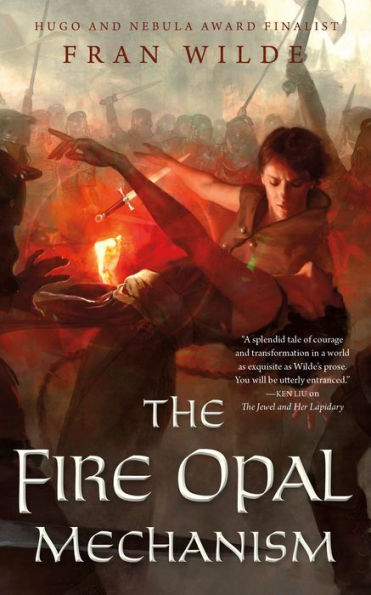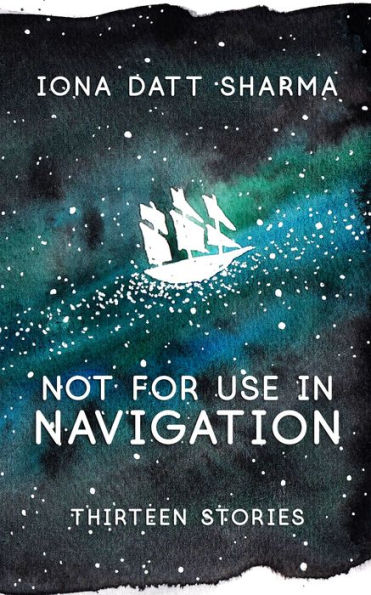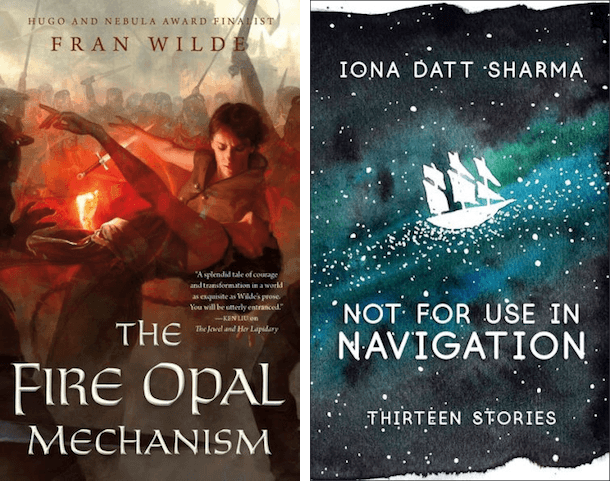I’m sitting here, friends, trying to think of how to frame this week’s column. Because sometimes you read two books that seem complementary, but you’re not sure if you can put the reasons behind that feeling into words. For all its variety and flexibility, language occasionally falls short when it comes to articulating intangibles.
Rude of it.
On the face of things, Fran Wilde’s time-travel fantasy novella The Fire Opal Mechanism and Iona Datt Sharma’s debut short fiction collection, Not For Use In Navigation, are nothing alike. One is a single story of connection, resistance, longing and hope in an information dystopia, an ongoing argument about the relative importance of a diversity of information sources vs. the accessibility of information written in elegant prose and set in a fascinating world.
Buy the Book


The Fire Opal Mechanism
The other is a collection of elegiac, wistful, eloquent pieces of short fiction, elliptical and haunting, about the edges of things—societies, cultures, families, the law in all its stately majesty, history, war, right and wrong, survival and recovery, and the difference between them. The strongest entry in Not For Use In Navigation’s lists is the (at least) novelette-length “Quarter Days,” a historical fantasy set in London shortly after WWI, focused on a three-person practice of magical practitioners whose working environment resembles a solicitor’s practice. It’s a story of aftermaths and experiences of exclusion, and the creation of community—families found and made. But even the slightest of the stories here remains able to amuse and engage. Even the slightest still has something to say.
But to my eyes, The Fire Opal Mechanism and Not For Use In Navigation share a mood, an atmosphere of loss and change and work, and a concern with mentorship and belonging that unites them across their differences.
In The Fire Opal Mechanism, a librarian who has survived the fall of the last university in the Six Kingdoms and who just wants to keep a handful of books out of the devouring hands of the Pressmen, and a thief who’s lost her brother and who just wants to make enough money to travel beyond the Pressmen’s reach are thrown together on a journey through time facilitated by a strange clock and the fire opal jewel at its heart. Their journey leads them to a better understanding of the Pressmen and their rise, and the gem that fuels (and is fueled by) the Pressmen’s great and terrible Press, but it also draws them together into a bond of mutual trust that neither of them expected, and leads them to the determination that, although they can’t change the past, they have to work to change the future—together. The Fire Opal Mechanism is engaging and vivid, a deeply character-focused story that is also striving to be humane in its arguments.
Buy the Book


Not For Use In Navigation
The stories of Not For Use In Navigation are also humane, and so strongly focused on character that, at times, all else seems extraneous. And yet Datt Sharma builds strong and vibrant worlds in which those characters can act. These stories are vitally alive. And they’re also fun.
I recommend both The Fire Opal Mechanism and Not For Use In Navigation to your attention. Don’t let them pass you by!
What are you guys reading lately?
Liz Bourke is a cranky queer person who reads books. She holds a Ph.D in Classics from Trinity College, Dublin. Her first book, Sleeping With Monsters, a collection of reviews and criticism, was published in 2017 by Aqueduct Press. It was a finalist for the 2018 Locus Awards and was nominated for a 2018 Hugo Award in Best Related Work. Find her at her blog, where she’s been known to talk about even more books thanks to her Patreon supporters. Or find her at her Twitter. She supports the work of the Irish Refugee Council, the Transgender Equality Network Ireland, and the Abortion Rights Campaign.










